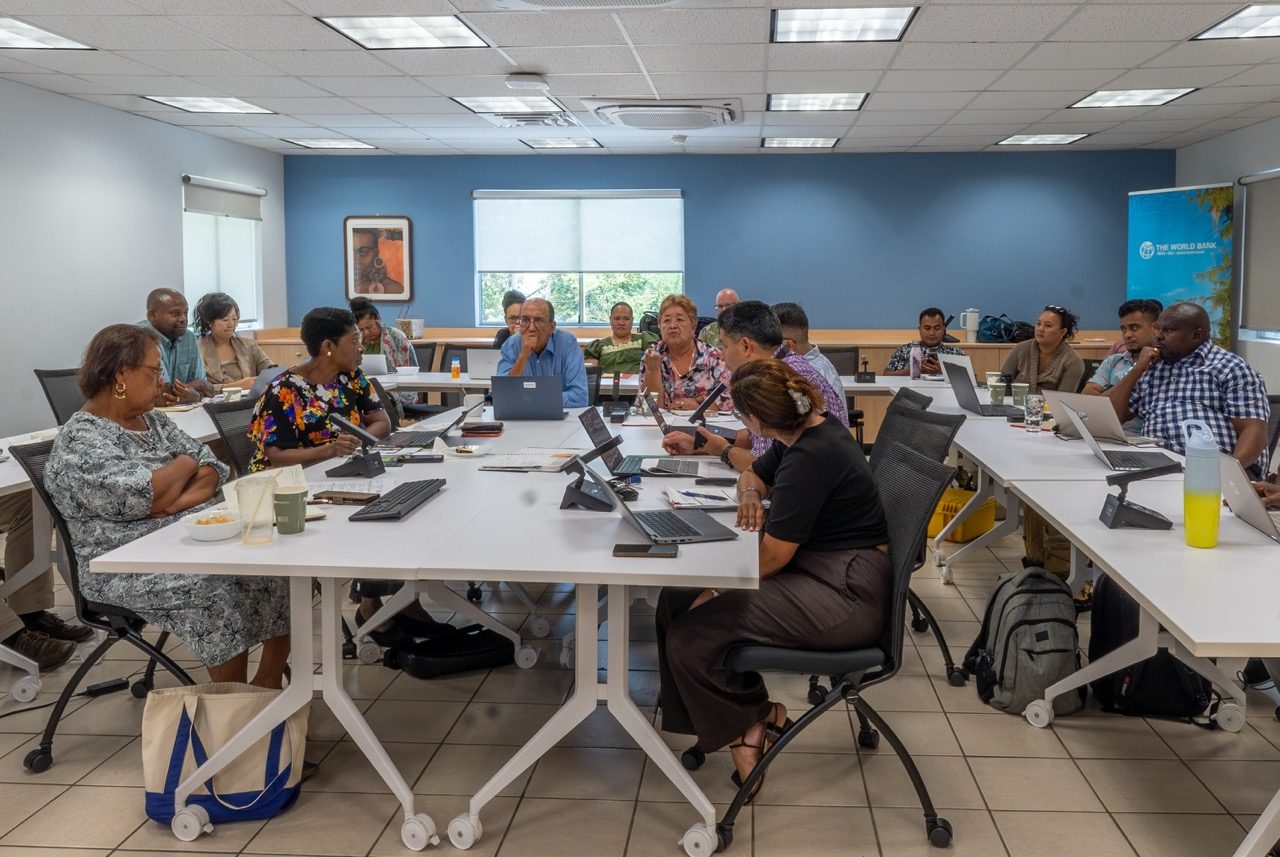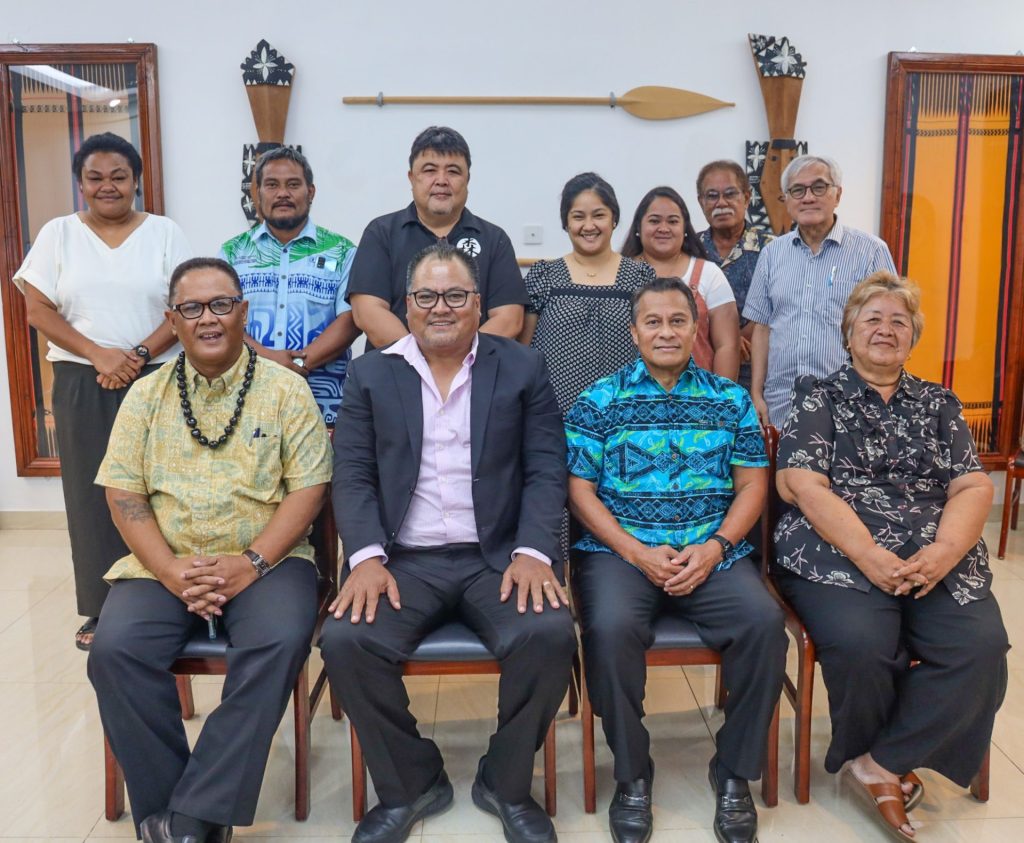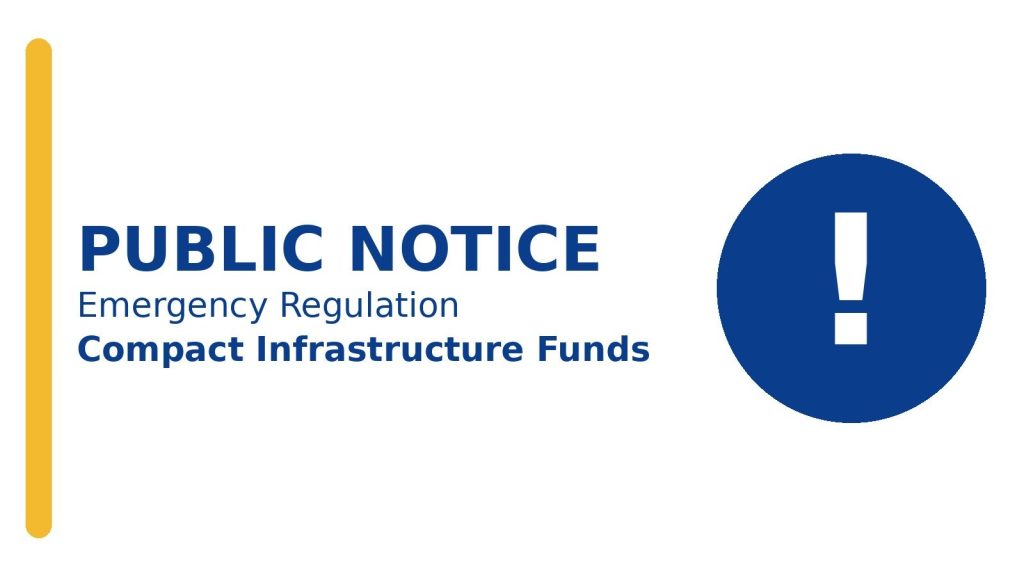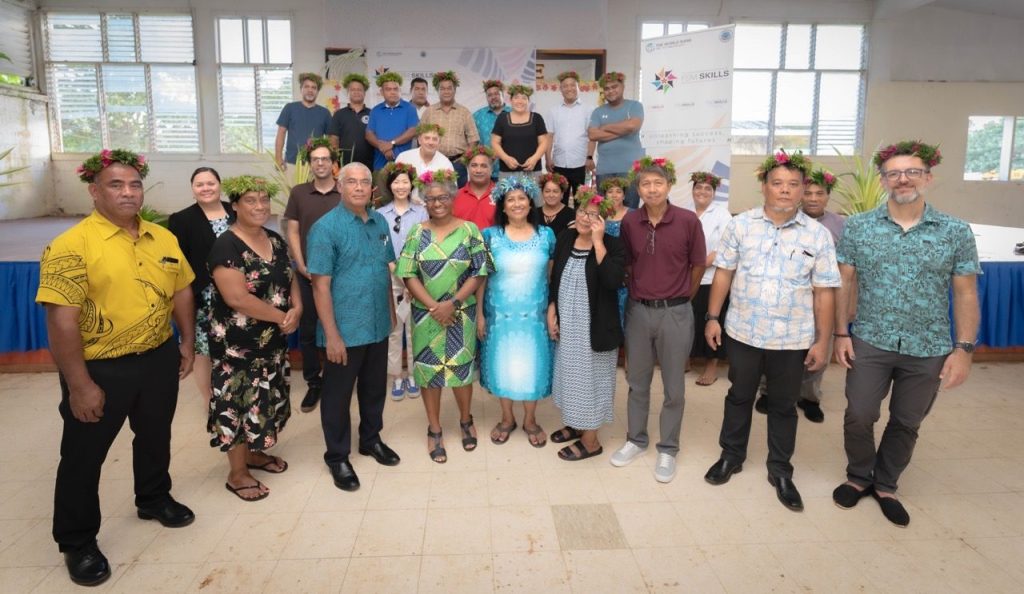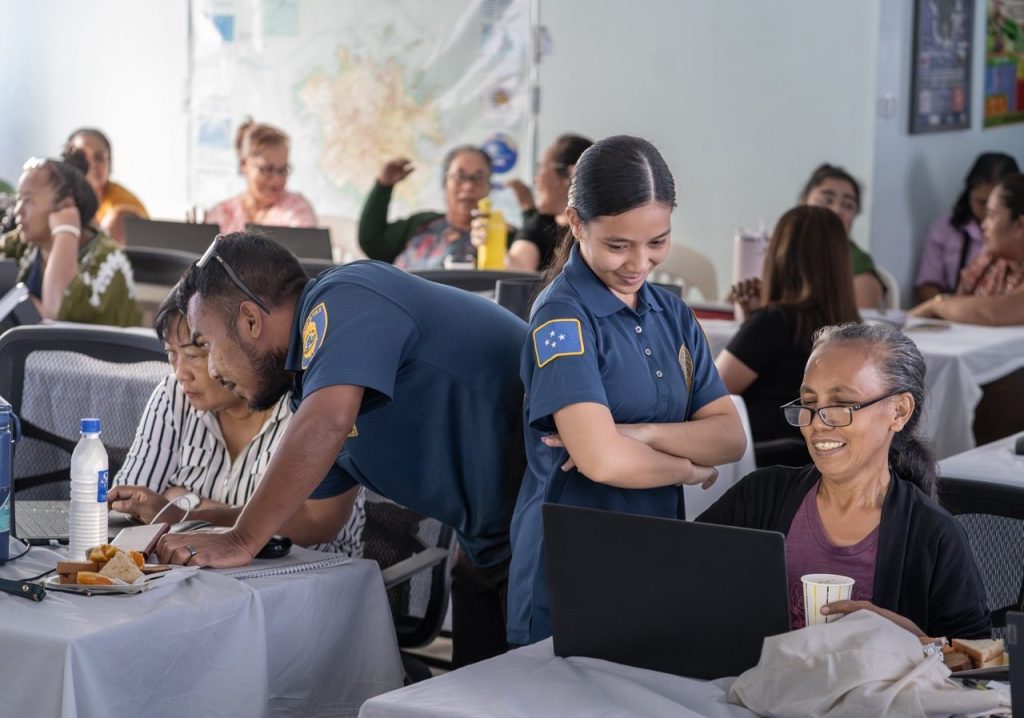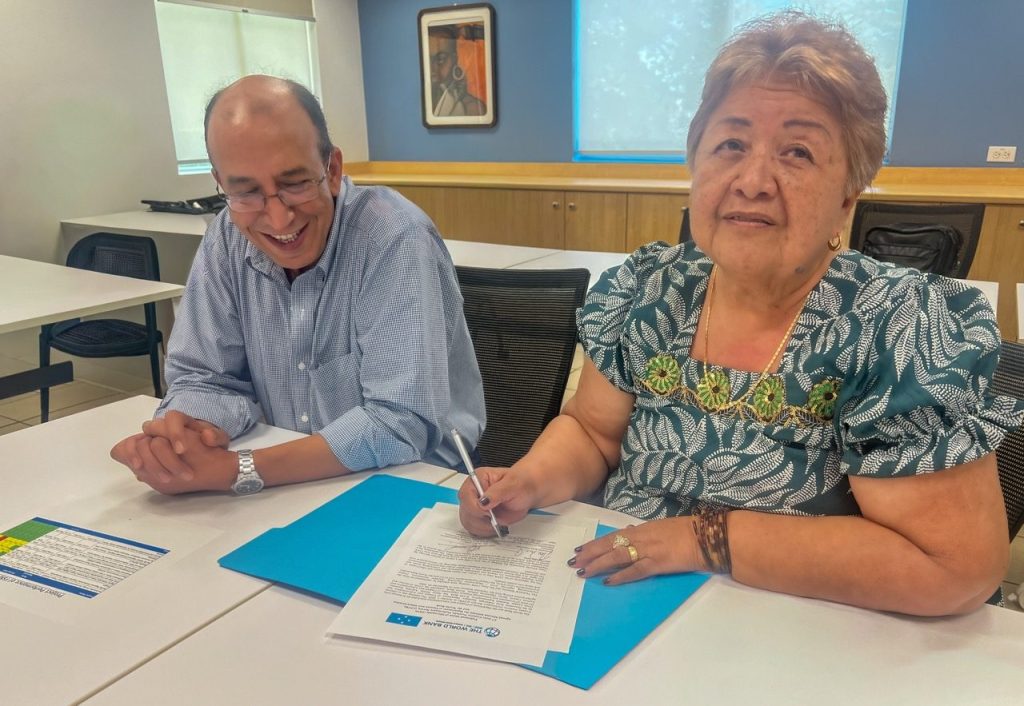
Pohnpei, FSM – October 2, 2025 — The Government of the Federated States of Micronesia (FSM) and the World Bank concluded a two-day Joint Country Portfolio Performance Review (CPPR) in Pohnpei focused on faster delivery and visible results for communities across all four states. More than 50 representatives from national departments, Project Implementation Units (PIUs), the Central Implementation Unit (CIU), and the World Bank met at the Bank’s North Pacific Office to review 10 active projects with a total net commitment of about US$354.35 million. With approximately US$108.32 million (31 percent) already disbursed, roughly US$246 million remains available to turn plans into better roads, more reliable power, affordable connectivity, relevant skills training, and stronger public service delivery.
Opening the review, the Honorable Rose N. Nakanaga, Secretary of Finance and Administration, set an action-oriented tone. “We’re proud of the teams delivering for citizens—and where activities are behind, we’ll unblock them quickly so no funding is lost.” Her message—to celebrate results while fixing bottlenecks—framed two days of practical discussions and problem-solving.
Day 1 spotlighted project performance in energy (SEDAP and ARISE), transport (PRIME and SCORE), digital development and connectivity (Digital FSM and Connectivity project), skills and employability (SEE project), and implementation capacity (IMPACT). Project teams shared progress and agreed on specific next steps to sustain momentum. Day 2 addressed the cross-cutting enablers that keep delivery on track—procurement, financial management, environmental and social safeguards, and portfolio management—so the remaining funds can move quickly and transparently to the communities that need it the most. The review concluded with a time-bound action plan and a joint progress check set for March 2026 ahead of the World Bank Spring Meetings.
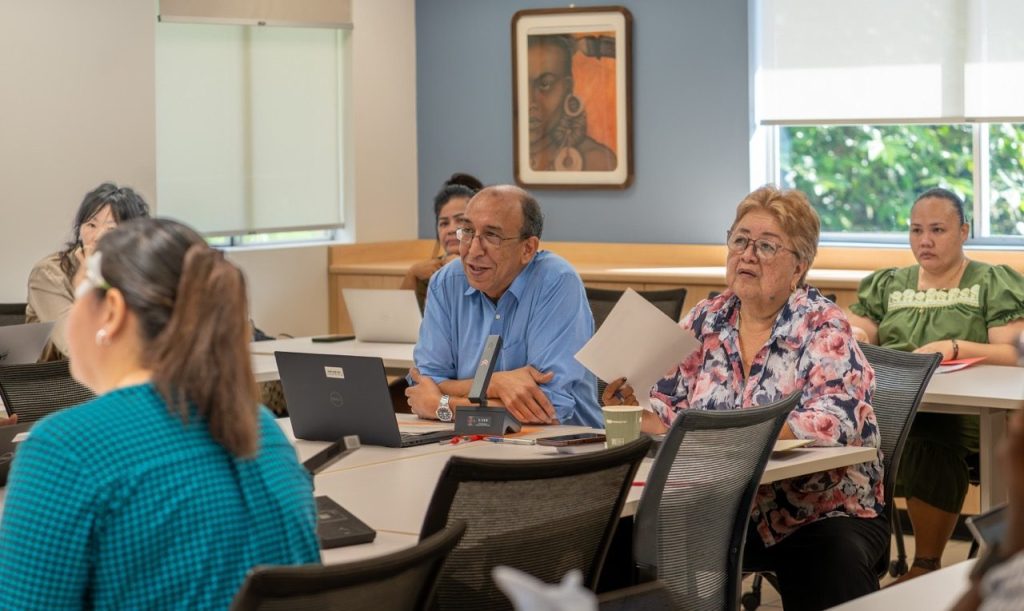
The sessions were co-moderated by Assistant Secretary Senny Phillip (Division of Investment and International Finance, DoFA) and Karlene Francis (Senior Operations Officer, World Bank), who kept the conversations tightly focused on implementation. As Francis noted, “We need to translate these discussions into day-to-day actions and measurable results on the ground.” Phillip underlined the whole-of-government approach that the CPPR promotes: “This has been a joint effort. We’ll keep a concise action log and track progress monthly.”
From the World Bank side, Resident Representative Omar Lyasse highlighted national leadership as the accelerator: “FSM’s leadership is clearly in the driver’s seat. That ownership is what accelerates results.” That emphasis on shared ownership is reflected in the agreed-upon actions, which include more active Project Steering Committees, continued hands-on procurement support, standard operating procedures to be incorporated into updated Project Operations Manuals, and targeted capacity-building for senior officials and PIU teams.
Portfolio momentum is visible in several areas. In the energy sector, the construction of outer-island mini-grids is progressing to bring more reliable electricity to remote communities. In digital development, a 200-gigabit (200 Gbps) upgrade to the Pohnpei–Guam international link is slated for commissioning in October 2025, improving speed, affordability, and network resilience. Through the Digital FSM program, community digital-safety outreach has already reached more than 3,000 people. On the skills agenda, 18 master trainers and 22 school counselors have completed training to strengthen classroom delivery and student support. On systems, the CPPR noted on-time financial reporting and continued safeguards training to ensure delivery compliance as projects advance.
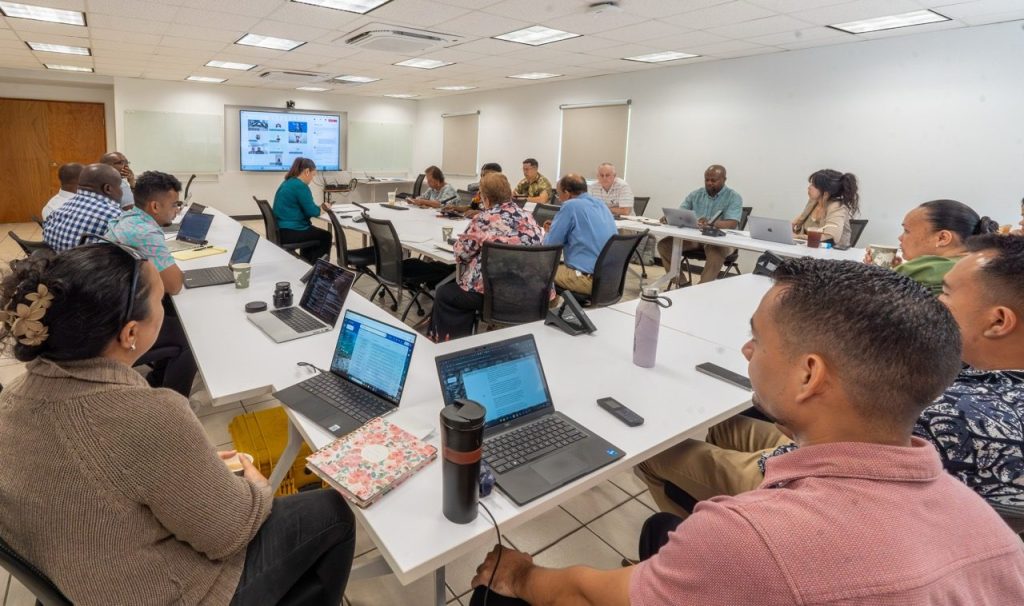
The transport program remains a major priority, with investments designed to improve safety and climate resilience for critical road links that connect communities to schools, clinics, and markets. Connectivity and digital services are enabling citizens and businesses to participate more fully in the economy, while public financial management reforms aim to make service delivery more transparent and efficient in the long term.
The review concluded with a formal signing of the Agreed Minutes and the Portfolio Performance Improvement Action Plan by Secretary of Finance and Administration, Honorable Rose N. Nakanaga, and World Bank Resident Representative Omar Lyasse. The signing underscored a practical partnership built on accountability—clear task owners, deadlines, and monthly follow-up.
A focused action list, monthly follow-up, and strong government leadership—paired with World Bank technical expertise—will convert the remaining funds into tangible results: safer roads, reliable power, affordable high-speed internet, and better services statewide. In March 2026, a joint progress review will take stock and push the next round of improvements.
Media contacts
Alvaro Hoyos, Communications Specialist, CIU/DoFA: alvaro.hoyos@dofa.gov.fm https://dofa.gov.fm
Hamish Wyatt, Senior External Affairs Officer, World Bank:hwyatt@worldbank.org, https://www.worldbank.org/en/country/pacificislands

